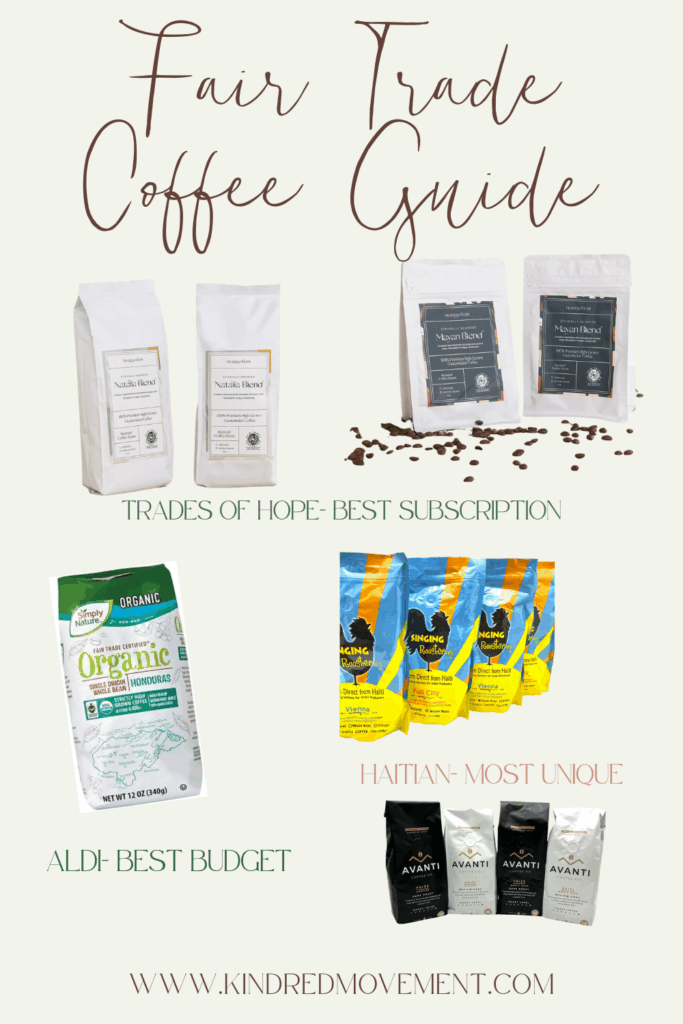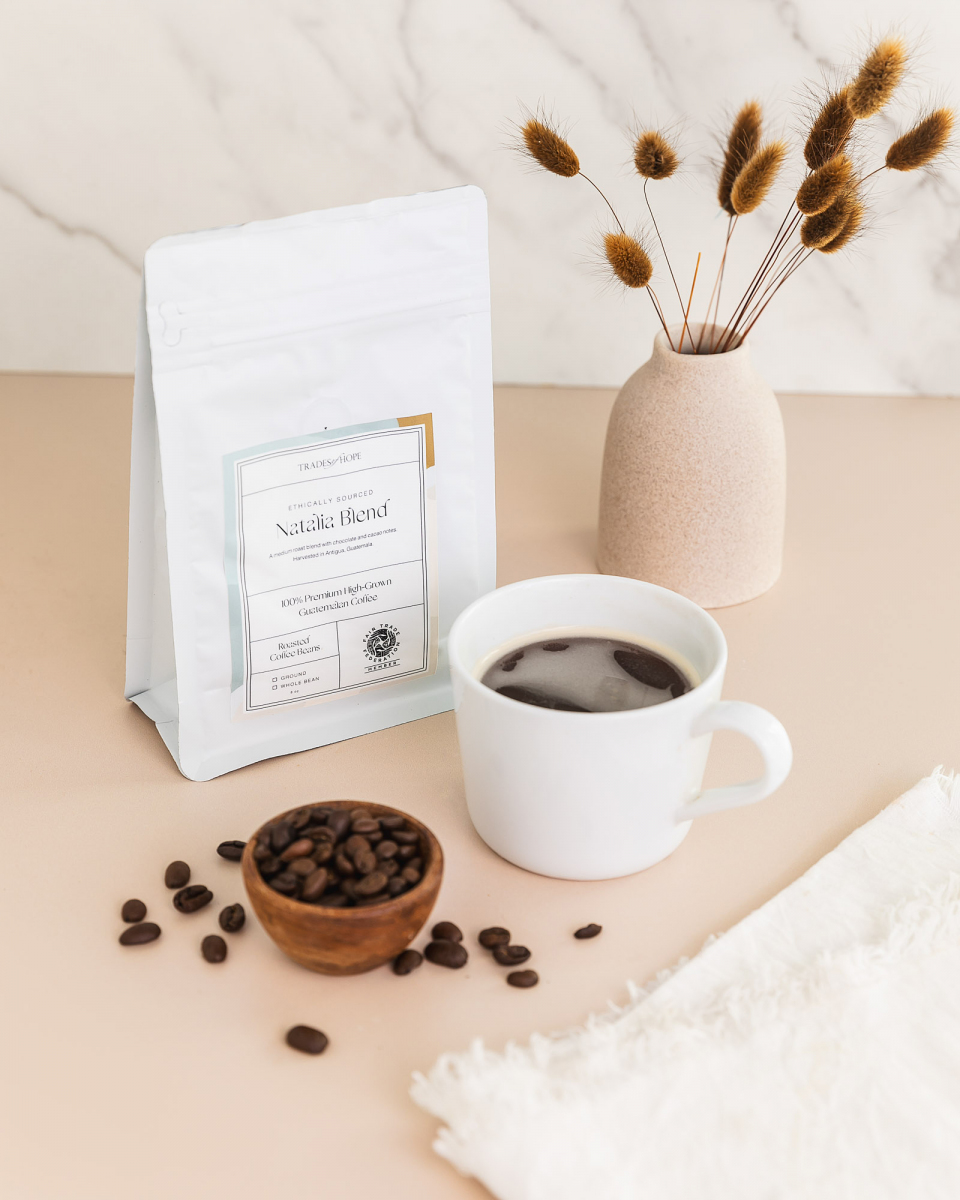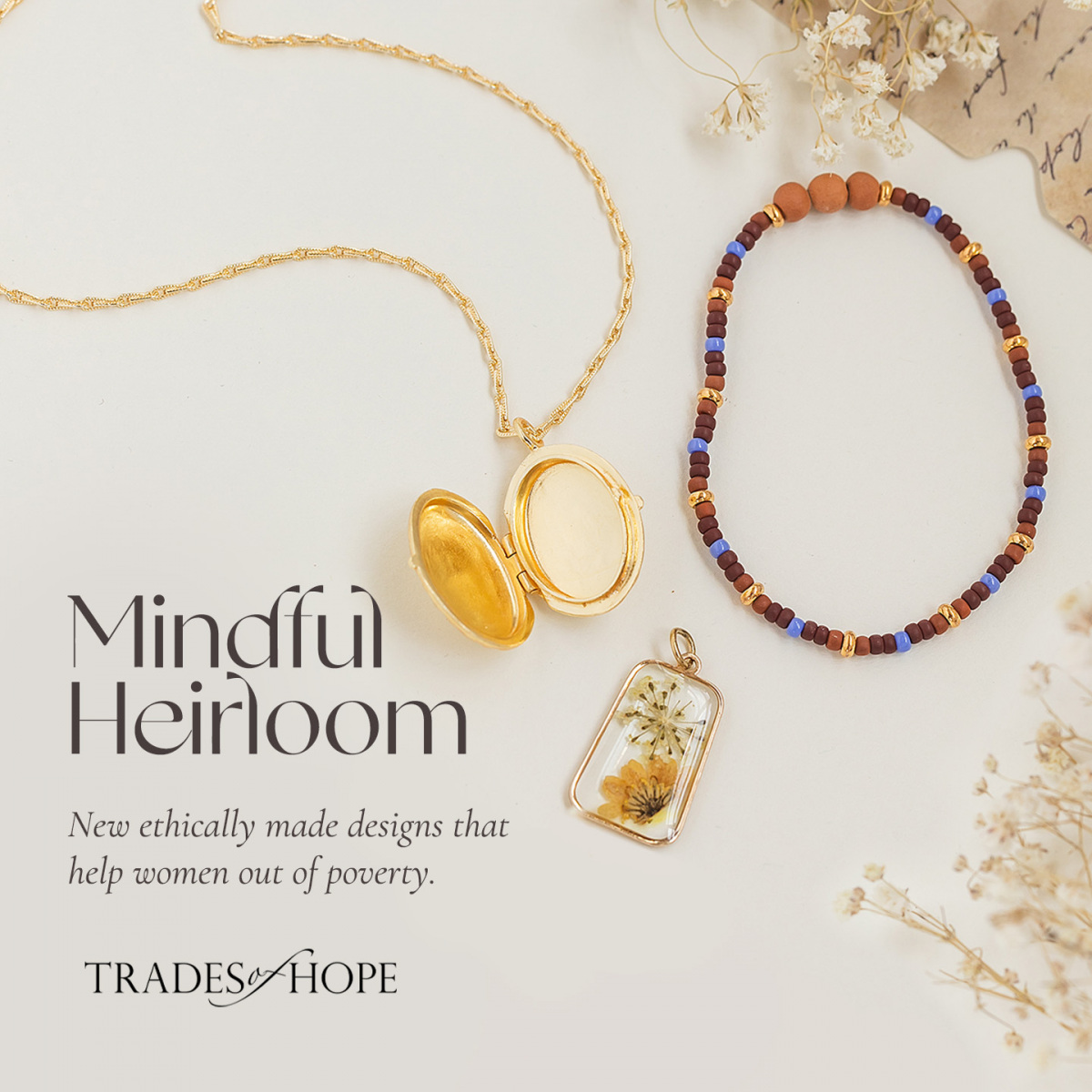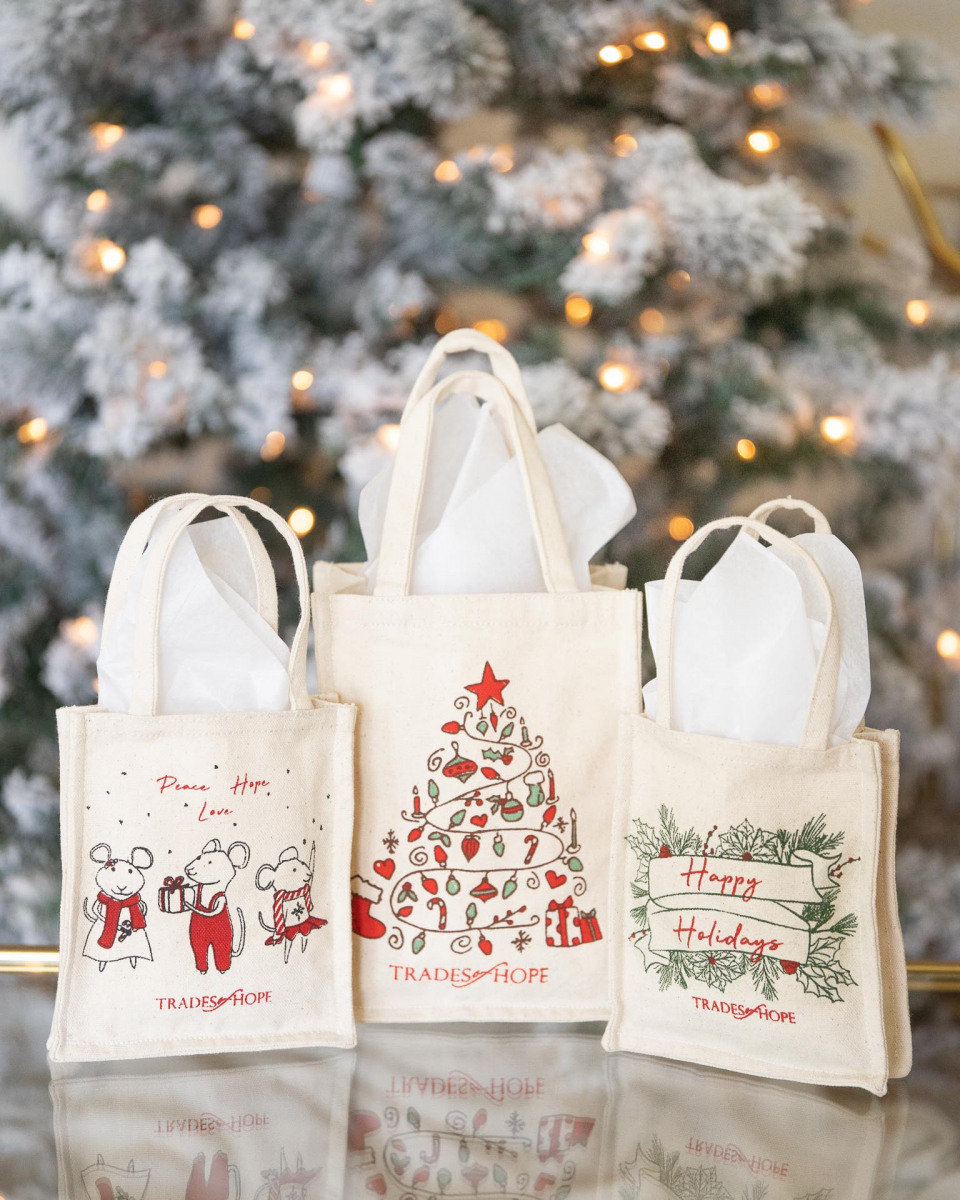Did you know coffee is the second most traded commodity in the world…right after oil? Most of us drink it every day, but few people realize how many hands touch those beans before they reach our cup. Behind those beans are real people, and for many, coffee farming isn’t the cozy picture we imagine.
In too many parts of the world, coffee production is tied to child labor, poverty wages, and even human trafficking. That’s why I’m so passionate about choosing Fair Trade coffee. It helps protect workers and ensures they’re paid fairly for their work.
Since October is Fair Trade Month, I put together a list of my favorite Fair Trade coffee brands to help you shop with confidence. These are the ones I personally buy and love…good flavor, ethical sourcing, and a mission that matters. Each one tastes amazing, come from ethical sources, and create real opportunities for families around the world.
If you want your coffee habit to do good in the world, this guide makes it simple.
Best Subscription/My Top Choice- Trades of Hope
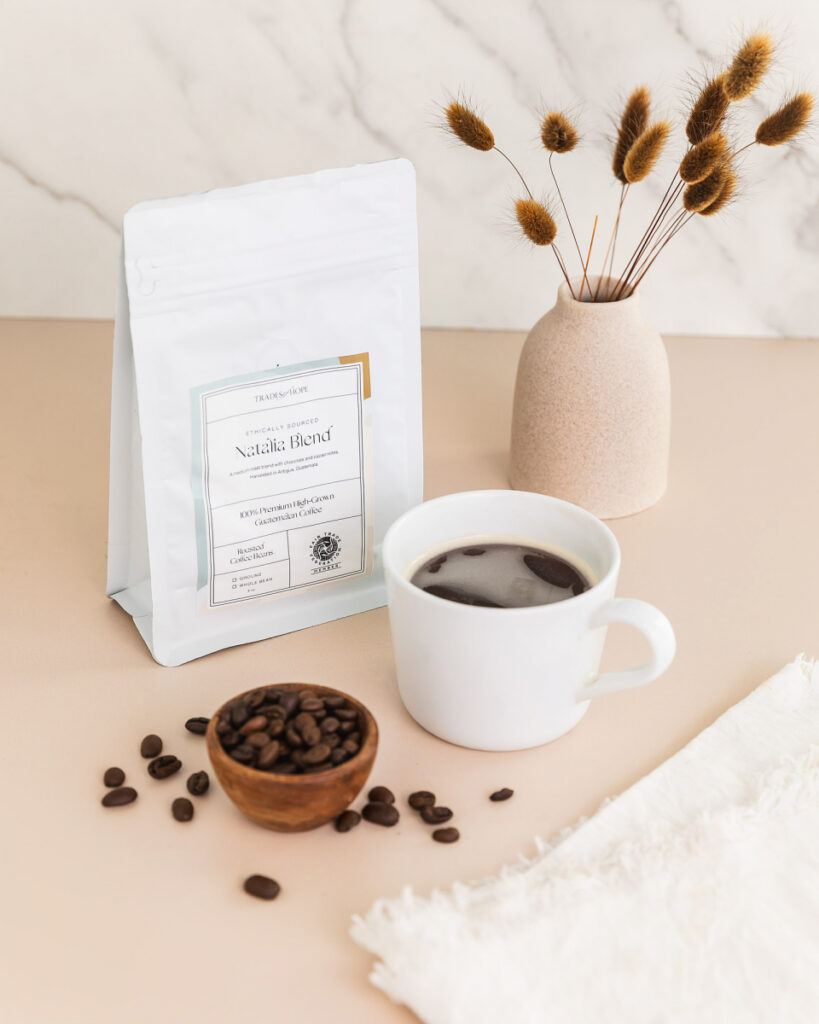
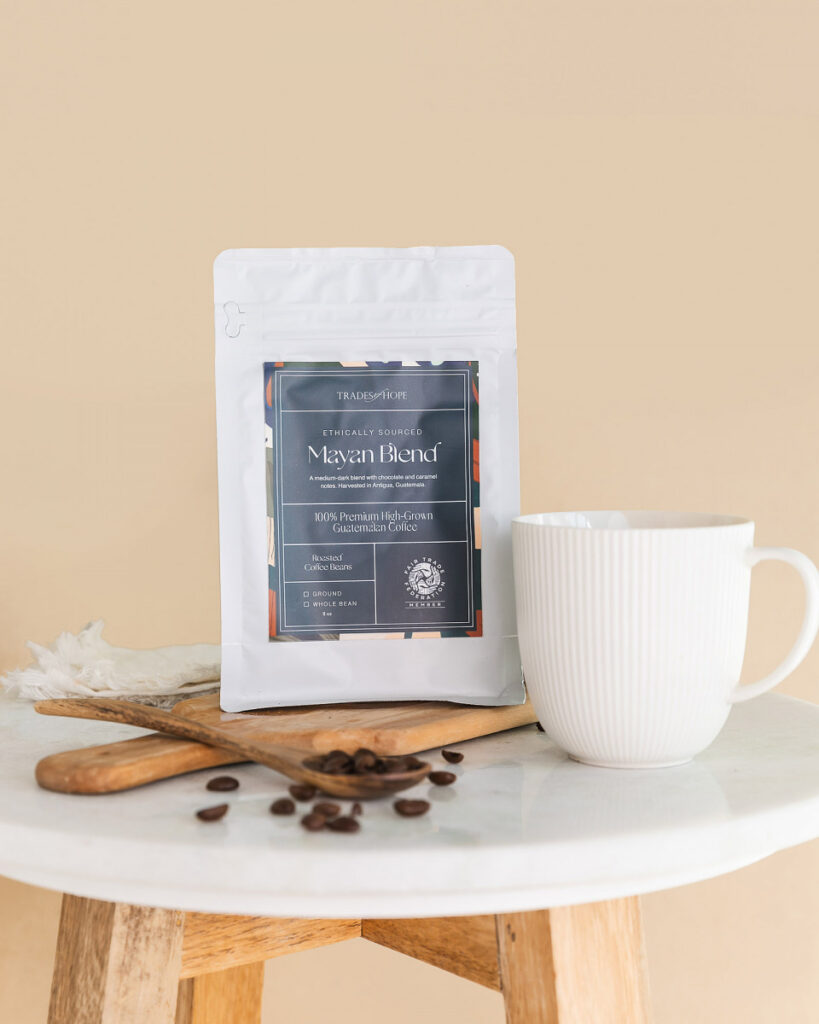
If I could only recommend one Fair Trade coffee, this would be it. Trades of Hope Coffee is always my top pick. It’s offered as a subscription, which makes it so easy to get your favorite coffee delivered right to your door each month. But it’s not just convenient…it does so much more than pay workers fairly.
I’ve personally visited the plantation in Guatemala and met the owner, Pablo, and the coffee roaster, Flavia. Seeing the care, integrity, and respect for the community firsthand confirmed that this coffee is 100% the real deal. The Natalia Blend is rich, ethically crafted, and seriously boujee. For something a little different, try their dark roast, the Mayan Blend. Both blends come in whole bean or ground options.
Why I love it:
- Subscribe & Save – Free shipping included. Two 14oz bags delivered monthly.
- Premium flavor – Medium roast Natalia Blend features notes of chocolate and cacao.
- Ethically sourced – High-grown Guatemalan beans are harvested, roasted, and shipped fresh from Antigua. Your cup provides families with safe jobs, fair wages, education, and healthcare.
- Organically grown & pesticide-free – Shade trees shelter over 300 migratory bird species, volcano-enriched soil adds flavor, and 1/3 of the plantation is untouched forest.
Flavia’s Story of Hope:
“I have worked as a coffee roaster and packaging coffee for 12 years. I was looking for a job opportunity and the chance to learn roasting came up. To roast coffee is a very delicate process; one minute more or less can make the difference. Without my job, I wouldn’t have any income to support my family or opportunities to learn new skills. My work is helping me achieve my dreams because it gives me new opportunities and things to learn. My dream is that the coffee business grows so we all have a job.”
Every cup you sip supports real families in Guatemala. Safe jobs, fair wages, access to medical care, therapy for children with disabilities, and education….all made possible through your purchase.
Sip with purpose. Your coffee habit can support communities while giving you a delicious, high-quality cup every day.
Best Budget- Aldi
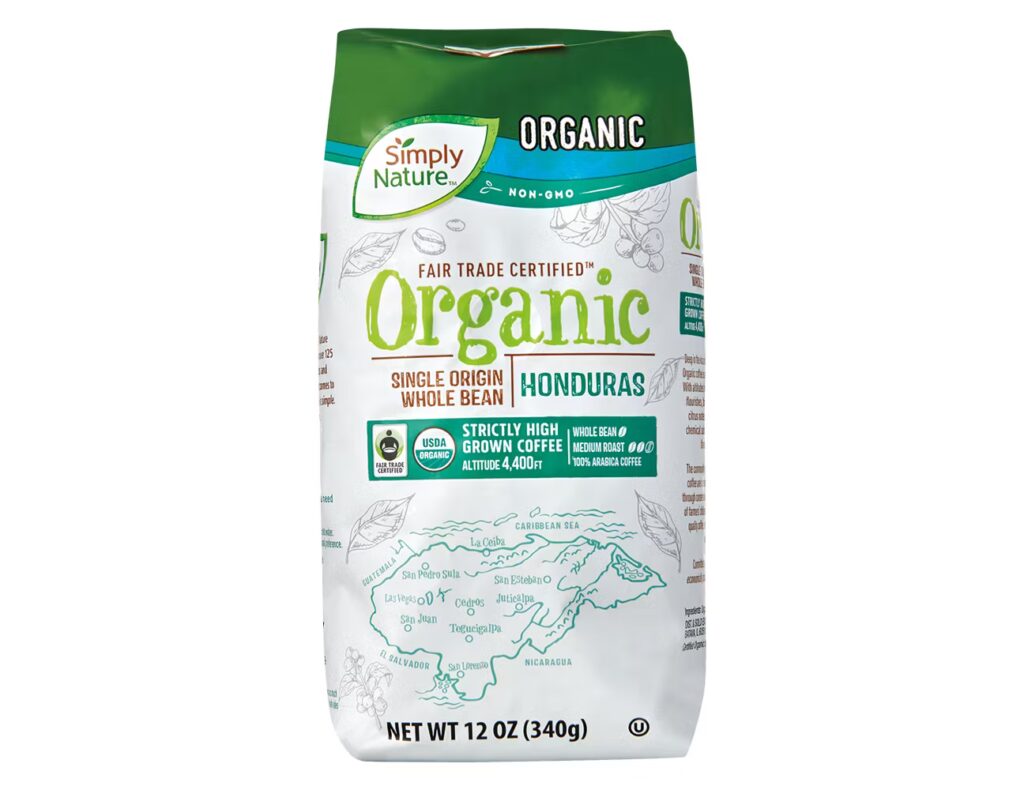
This is the coffee I drink every single day! It’s what fits in our budget right now, and honestly, it’s really good. I’ve lived in the Montecillos region of Honduras, where these beans come from, and I visit often. I love stopping by the local coffee shops there and enjoying coffee as fresh as possible, so I can personally vouch for the flavor and quality of this Fair Trade coffee.
Aldi also offers a ground Peru version that I haven’t tried yet, but it’s a solid option if you prefer ground over whole bean.
Why I Love It:
Fresh flavor – Reminds me of the local coffee shops in Honduras.
Ethically sourced – Fair Trade certified, supporting farmers and communities.
Organic & 100% Arabica – Clean, high-quality beans from Montecillos, Honduras.
Budget-friendly – Tastes amazing without breaking the bank.
Personal connection – I’ve lived in the region and visit often, so I know this coffee is the real deal.
The last time I shopped (this week), the price was just over $8… up from about $5 a few years ago—but I still think it’s worth it. For me, coffee is one area I’m willing to splurge on because it matters that much: great flavor, ethical sourcing, and supporting farmers.
Most Unique- Haitian (Singing Rooster & Avanti)
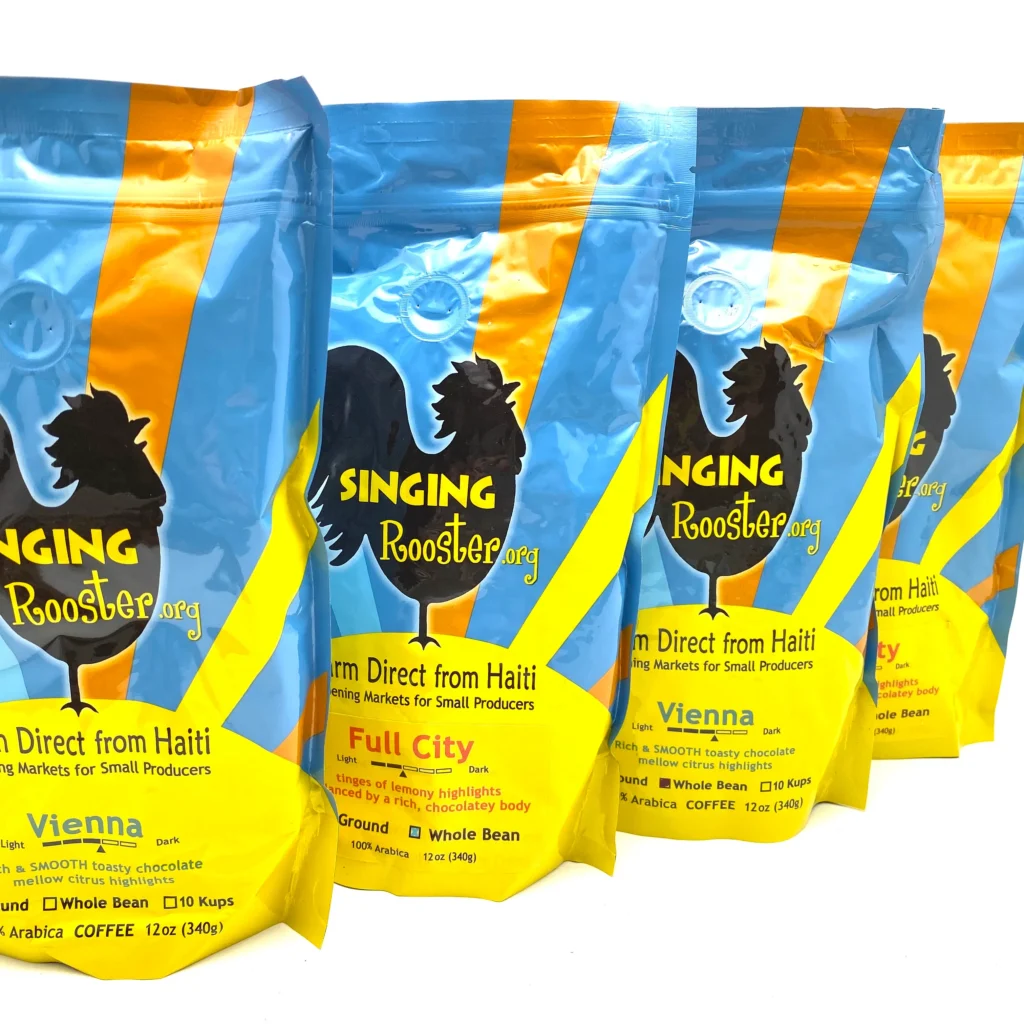
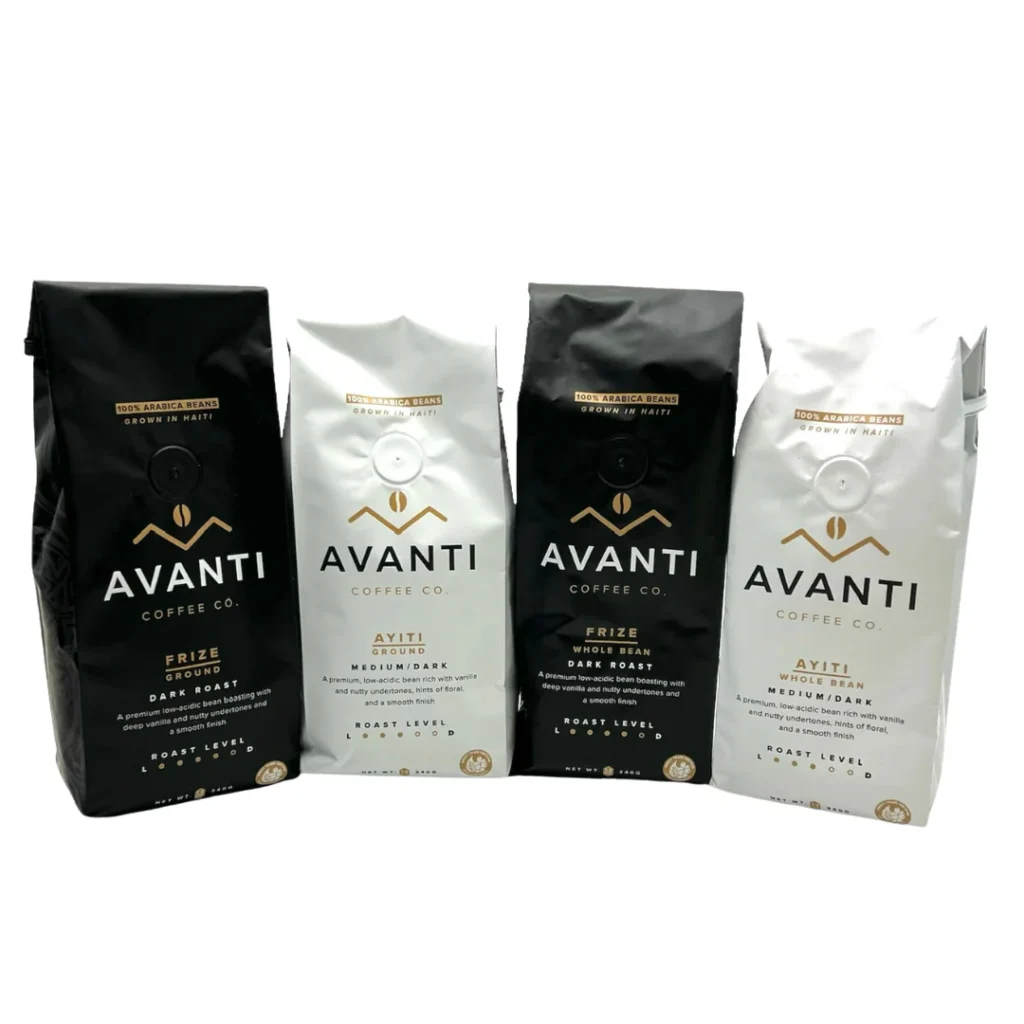
Have you had Haitian coffee before? I hadn’t either! But when I visited Haiti in 2018, Singing Rooster Blue Mountain was served to us, and that’s when I discovered it. I’ve loved gifting this coffee and offering it to anyone who wants to try something new.
I also have a heart for Haiti, so I love that every cup supports Fair Trade job opportunities in a place where they’re desperately needed. This coffee empowers small farmers to participate in the global coffee market while delivering smooth, chocolaty notes with hints of lemon and citrus…a classic Caribbean flavor.
Why I Love It:
- Supports Haiti – Fair Trade and farm-direct, helping small farmers earn fair wages.
- Unique flavor – Smooth, chocolaty with a hint of citrus.
- Versatile options – Available as ground or whole bean.
- Medium-dark roast – Bold but approachable.
Details – Singing Rooster:
- 12-ounce bag of Mountain Blue Fair Trade coffee
- Tasting notes: Smooth & chocolaty with hints of lemon and citrus
- Roast: Medium-Dark
- Options: Ground or Whole Bean
Another Great Haitian Option – Avanti Coffee:
- 12-ounce bag of farm-direct coffee grown in Haiti
- Medium-Dark roast, available ground or whole bean
- Helps provide small farmers with fair work and access to the global coffee market
Both are fantastic choices if you’re looking to try coffee from Haiti or gift a unique, mission-minded coffee experience.
Thank you for taking the time to explore these Fair Trade coffee options with me. I hope this guide makes it easier for you to choose coffee that tastes great and supports families, communities, and ethical practices around the world.
Whether you’re sipping the rich, boujee Trades of Hope Coffee, enjoying the everyday favorite from Aldi, or exploring something unique like Haitian coffee, each cup can make a real difference.
Happy sipping, and thank you for making intentional choices that matter!
Source: Coffee is the second most traded commodity in the world after oil (Saxo, 2024) and coffee production is linked to forced labor and trafficking in multiple countries (Ohio State University, 2018).
